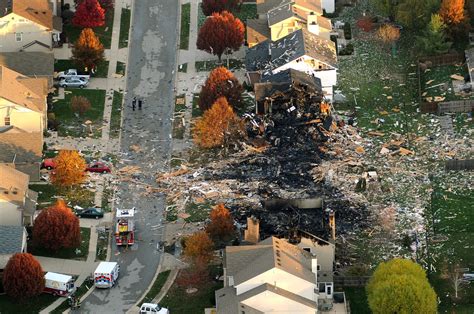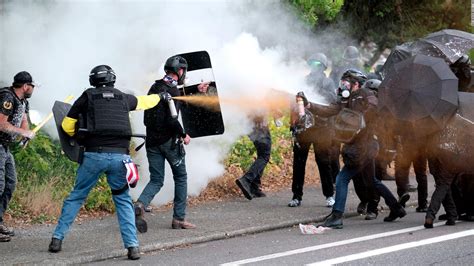
A Texas woman whose home was intentionally destroyed by law enforcement during a 2020 standoff with a suspected shoplifter will receive $60,000 in compensation after a federal judge ruled in her favor. Vicki Baker, the homeowner, was later billed $52,000 by the city of McKinney for the demolition, despite having no connection to the suspect, Quinton Cruse.
The ruling, issued by U.S. District Judge Amos Mazzant, found that the city of McKinney violated Baker’s constitutional rights through an unreasonable seizure when they destroyed her home. The incident occurred on July 17, 2020, when Cruse, fleeing police after allegedly stealing merchandise from a nearby Walmart, barricaded himself inside Baker’s residence without her knowledge or consent.
Police, believing Cruse was armed and posed a threat, deployed SWAT teams and eventually used explosives to breach the house and apprehend him. Baker’s home was left uninhabitable, and she subsequently received a bill from the city for the demolition costs. This case has raised significant questions about police tactics, property rights, and the responsibility of municipalities in situations where innocent homeowners suffer damages during law enforcement operations. The judge’s decision highlights the complexities of balancing public safety with individual liberties and property protections.
The Standoff and Subsequent Demolition
On the day of the incident, Quinton Cruse allegedly shoplifted from a Walmart in McKinney and led police on a high-speed chase. He eventually abandoned his vehicle and sought refuge in Baker’s home, which was unlocked at the time. Baker was not home when Cruse entered her property.
Upon discovering that Cruse was inside, police surrounded the house and attempted to negotiate his surrender. According to court documents, authorities believed Cruse was armed, although no weapon was ever found on his person or in the residence. After several hours of failed negotiations, police decided to breach the house. They deployed explosives, which caused significant structural damage. Ultimately, Cruse was taken into custody without further incident.
Baker returned home to find her house in ruins. The interior was heavily damaged, and the structure was deemed unsafe to occupy. The city of McKinney subsequently sent her a bill for $52,000, covering the costs of the demolition and cleanup. This bill further compounded Baker’s distress and sparked outrage among civil rights advocates and legal experts.
Legal Battles and Constitutional Claims
Baker, represented by attorneys from the Institute for Justice, filed a lawsuit against the city of McKinney, alleging violations of her Fourth and Fifth Amendment rights under the U.S. Constitution. The Fourth Amendment protects individuals from unreasonable searches and seizures, while the Fifth Amendment ensures that private property shall not be taken for public use without just compensation.
Baker’s legal team argued that the city’s actions constituted an unreasonable seizure because the destruction of her home was excessive and disproportionate to the threat posed by Cruse. They also contended that the city’s attempt to bill her for the demolition amounted to an unconstitutional taking of her property without compensation.
The city of McKinney defended its actions, arguing that the police were acting within their authority to protect public safety and apprehend a dangerous suspect. They claimed that the use of explosives was necessary to ensure the safety of law enforcement officers and prevent Cruse from potentially harming himself or others. The city also argued that Baker was responsible for the damage to her property because she had allegedly left her door unlocked, which allowed Cruse to enter. This argument was widely criticized as victim-blaming and legally unsound.
The Judge’s Ruling
Judge Mazzant sided with Baker, ruling that the city of McKinney had violated her Fourth Amendment rights. In his ruling, Mazzant stated that the destruction of Baker’s home constituted an unreasonable seizure because it was not justified by the circumstances. He noted that while police had a legitimate interest in apprehending Cruse, the extent of the damage to Baker’s property was excessive and unnecessary.
“The Court finds that the destruction of Baker’s home was an unreasonable seizure under the Fourth Amendment,” Mazzant wrote in his order. “While the City had a legitimate interest in apprehending Cruse, the extent of the damage to Baker’s property was excessive and not justified by the circumstances.”
Mazzant awarded Baker $60,000 in damages, representing compensation for the destruction of her property and the emotional distress she suffered. However, he did not rule on the Fifth Amendment claim, finding that it was not necessary to resolve the case. The judge’s decision was hailed as a victory for property rights advocates and a rebuke of the city of McKinney’s actions.
Aftermath and Implications
The ruling in Baker’s case has significant implications for law enforcement practices and the protection of property rights. It sends a clear message to municipalities that they cannot destroy private property without justification and then bill the homeowner for the damages. The case highlights the importance of balancing public safety with individual liberties and the need for police to exercise restraint and proportionality in their use of force.
Following the ruling, Baker expressed relief and gratitude. “I am grateful that the court recognized the injustice that was done to me,” she said in a statement. “No one should have their home destroyed and then be forced to pay for it.”
The Institute for Justice, which represented Baker, praised the ruling as a victory for property rights. “This case shows that the government cannot destroy someone’s home and then stick them with the bill,” said Jeffrey Redfern, an attorney with the Institute for Justice. “The Fourth Amendment protects homeowners from unreasonable seizures, and that includes the destruction of their property.”
The city of McKinney has not yet indicated whether it will appeal the ruling. However, the case has already prompted discussions about police training and policies regarding the use of force and the protection of private property.
Broader Context and Related Cases
Baker’s case is not an isolated incident. There have been several other instances across the United States where law enforcement agencies have damaged or destroyed private property during the course of their operations and then attempted to hold the property owners liable for the costs. These cases have often involved standoffs with suspects, drug raids, or other law enforcement actions where property damage is a collateral consequence.
In some cases, courts have ruled in favor of property owners, finding that the government’s actions constituted an unconstitutional taking or an unreasonable seizure. In other cases, courts have sided with law enforcement, citing the need to protect public safety and the discretionary authority of police officers.
One notable case is Lech v. Jackson, where a homeowner in Greenwood Village, Colorado, sued the city after police destroyed his house while pursuing a suspected shoplifter. The Tenth Circuit Court of Appeals ruled that the city was not required to compensate the homeowner for the damages, finding that the police were acting within their authority to apprehend a dangerous suspect.
However, the Lech case and others like it have been criticized by property rights advocates who argue that they create a perverse incentive for law enforcement to prioritize public safety over the protection of private property. These advocates argue that municipalities should be held liable for damages caused by their agents, regardless of the circumstances, to ensure that property owners are not unfairly burdened by the costs of law enforcement operations.
The Doctrine of Qualified Immunity
One legal doctrine that often arises in cases involving alleged police misconduct is qualified immunity. Qualified immunity protects government officials from liability in civil lawsuits unless their conduct violates clearly established statutory or constitutional rights, and there is binding precedent in the jurisdiction at the time of the alleged violation. This defense is frequently invoked by law enforcement officers who are accused of using excessive force or violating someone’s rights.
In Baker’s case, the city of McKinney did not explicitly invoke qualified immunity as a defense, but the doctrine is often a significant hurdle for plaintiffs seeking to hold law enforcement officers accountable for their actions. The Supreme Court has repeatedly upheld the doctrine of qualified immunity, arguing that it is necessary to protect government officials from frivolous lawsuits and to allow them to perform their duties without fear of being second-guessed.
However, critics of qualified immunity argue that it shields police officers from accountability and makes it difficult for victims of police misconduct to obtain justice. They argue that the doctrine should be abolished or modified to make it easier for plaintiffs to sue government officials for violating their rights. The debate over qualified immunity is likely to continue in the coming years, as civil rights advocates and legal scholars continue to challenge the doctrine’s legitimacy and scope.
The Role of Insurance
Another issue that often arises in cases involving property damage caused by law enforcement is the role of insurance. Homeowners insurance policies typically cover damages caused by fire, wind, and other natural disasters, but they often exclude coverage for damages caused by government action or law enforcement activity. This means that homeowners who suffer property damage as a result of police operations may be left without recourse, unless they can successfully sue the government for compensation.
In Baker’s case, it is unclear whether she had insurance coverage for the damage to her home. Even if she did, it is possible that her policy would have excluded coverage for damages caused by law enforcement. This highlights the challenges faced by homeowners who are caught in the crossfire of police operations and who may be left with substantial financial losses as a result.
Some states have laws that require municipalities to compensate homeowners for damages caused by law enforcement, regardless of whether the police were acting lawfully. However, these laws are not universal, and many homeowners are left to bear the costs of repairing or rebuilding their homes after they have been damaged by police activity.
The Need for Police Reform
Baker’s case underscores the need for comprehensive police reform to ensure that law enforcement agencies are held accountable for their actions and that the rights of individuals are protected. Reform efforts should focus on improving police training, implementing stricter use-of-force policies, and increasing transparency and accountability.
Police training should emphasize de-escalation techniques, conflict resolution skills, and the importance of respecting individual rights. Use-of-force policies should be clear and unambiguous, and they should prioritize the use of non-lethal methods whenever possible. Transparency and accountability can be enhanced by requiring police officers to wear body cameras, creating independent civilian review boards, and making it easier for victims of police misconduct to file complaints and seek redress.
In addition, municipalities should consider establishing programs to compensate homeowners for damages caused by law enforcement, regardless of whether the police were acting lawfully. These programs would provide a safety net for homeowners who are caught in the crossfire of police operations and who may be left with substantial financial losses as a result.
The Importance of Property Rights
The protection of property rights is a fundamental principle of American law and tradition. The Fifth Amendment to the U.S. Constitution guarantees that private property shall not be taken for public use without just compensation. This provision is intended to protect individuals from the arbitrary exercise of government power and to ensure that they are fairly compensated when their property is taken for public purposes.
However, the protection of property rights is not absolute. The government has the power to regulate the use of property to protect public health, safety, and welfare. The government can also take private property for public use through the process of eminent domain, provided that it pays just compensation to the property owner.
The challenge lies in balancing the government’s legitimate interests in regulating and taking property with the individual’s right to own and control their property. Courts have developed a variety of legal doctrines to address this challenge, including the “takings” clause of the Fifth Amendment, which requires the government to pay just compensation when it takes private property for public use, and the “regulatory takings” doctrine, which holds that government regulations that excessively restrict the use of property can constitute a taking even if the government does not physically occupy the property.
Baker’s case highlights the importance of protecting property rights and ensuring that individuals are not unfairly burdened by the costs of government action. While law enforcement agencies have a legitimate interest in protecting public safety and apprehending criminals, they must also respect the rights of individuals and avoid causing unnecessary damage to private property.
The Future of Similar Cases
The outcome of Baker’s case may influence the outcome of similar cases in the future. The ruling sends a clear message to municipalities that they cannot destroy private property without justification and then bill the homeowner for the damages. It also reinforces the importance of balancing public safety with individual liberties and the need for police to exercise restraint and proportionality in their use of force.
However, it is important to note that each case is unique and will be decided based on its own specific facts and circumstances. Courts will consider a variety of factors, including the severity of the threat posed by the suspect, the extent of the damage to the property, and the reasonableness of the police’s actions.
Property owners who believe that their rights have been violated by law enforcement should consult with an attorney to discuss their legal options. An attorney can help them assess the merits of their case and determine whether they have a valid claim for compensation.
The legal landscape surrounding property rights and police misconduct is constantly evolving. It is important for property owners, law enforcement agencies, and policymakers to stay informed about the latest developments in the law and to work together to ensure that the rights of individuals are protected while also ensuring public safety.
Frequently Asked Questions (FAQ)
-
What happened to Vicki Baker’s home?
- Vicki Baker’s home was intentionally destroyed by law enforcement officers in McKinney, Texas, during a standoff with a suspected shoplifter who had barricaded himself inside. Police used explosives to breach the house.
-
Why did the police destroy her home?
- Police believed the suspect, Quinton Cruse, was armed and posed a threat to officers and the public. They used explosives as a tactical measure to apprehend him after negotiations failed. No weapon was ever found.
-
Was Vicki Baker involved in the crime?
- No, Vicki Baker was not involved in the crime. She was not home when the suspect entered her unlocked house, and she had no prior connection to him.
-
Why was Vicki Baker billed for the demolition of her home?
- The city of McKinney sent Baker a bill for $52,000 to cover the costs of the demolition and cleanup. This bill was later challenged in court as an unconstitutional taking of her property without compensation.
-
What was the outcome of Vicki Baker’s lawsuit against the city of McKinney?
- A federal judge ruled in Baker’s favor, awarding her $60,000 in damages. The judge found that the city of McKinney violated her Fourth Amendment rights through an unreasonable seizure when they destroyed her home.
-
What legal rights were cited in the lawsuit?
- The lawsuit alleged violations of Baker’s Fourth Amendment (protection against unreasonable searches and seizures) and Fifth Amendment (protection against the taking of private property without just compensation) rights under the U.S. Constitution.
-
What was the city of McKinney’s defense in the case?
- The city argued that the police were acting within their authority to protect public safety and apprehend a dangerous suspect. They also claimed that Baker was partially responsible for the damage because she left her door unlocked.
-
What does the judge’s ruling mean for other homeowners in similar situations?
- The ruling sends a message to municipalities that they cannot destroy private property without justification and then bill the homeowner for the damages. It emphasizes the importance of balancing public safety with individual liberties.
-
Will the city of McKinney appeal the ruling?
- As of the latest reports, the city of McKinney has not indicated whether it will appeal the ruling.
-
Who represented Vicki Baker in the lawsuit?
- Vicki Baker was represented by attorneys from the Institute for Justice, a non-profit public interest law firm that advocates for property rights.
-
What is the “Fourth Amendment” that was violated in this case?
- The Fourth Amendment to the United States Constitution protects individuals from unreasonable searches and seizures by the government. This means law enforcement must have a valid warrant supported by probable cause before searching or seizing private property, unless certain exceptions apply.
-
What is the “Fifth Amendment” that was also cited in the lawsuit?
- The Fifth Amendment to the United States Constitution protects individuals from being compelled to be a witness against themselves in a criminal case. It also contains the “Takings Clause,” which states that private property shall not be taken for public use without just compensation.
-
What is the significance of the judge’s decision regarding the “seizure” of Baker’s property?
- The judge’s decision clarified that the destruction of Baker’s home by law enforcement constituted an unreasonable seizure under the Fourth Amendment. This means the court recognized that the police action went beyond what was necessary to apprehend the suspect and violated Baker’s right to be secure in her property.
-
Does homeowner’s insurance typically cover damage caused by police actions?
- Homeowner’s insurance policies often exclude coverage for damages caused by government action or law enforcement activity. This can leave homeowners without recourse if their property is damaged during police operations.
-
What is qualified immunity, and how does it relate to cases of alleged police misconduct?
- Qualified immunity protects government officials from liability in civil lawsuits unless their conduct violates clearly established statutory or constitutional rights. It is often invoked by law enforcement officers accused of using excessive force or violating someone’s rights.
-
What broader issues does this case highlight regarding law enforcement and property rights?
- The case highlights the need for police reform, including improved training, stricter use-of-force policies, and increased transparency and accountability. It also underscores the importance of protecting property rights and ensuring that individuals are not unfairly burdened by the costs of government action.
-
Are there other similar cases where law enforcement has damaged private property and attempted to hold the homeowner responsible?
- Yes, there have been several other instances across the United States where law enforcement agencies have damaged or destroyed private property during the course of their operations and then attempted to hold the property owners liable for the costs. These cases often involve standoffs with suspects, drug raids, or other law enforcement actions. Lech v. Jackson is one such example.
-
What is the doctrine of eminent domain, and how does it differ from the situation in Vicki Baker’s case?
- Eminent domain is the power of the government to take private property for public use, provided that it pays just compensation to the property owner. In Vicki Baker’s case, the government was not taking her property for public use; instead, her property was damaged as a result of law enforcement operations, which is a different legal issue.
-
What are some potential reforms that could prevent similar situations from happening in the future?
- Potential reforms include implementing stricter use-of-force policies, improving police training on de-escalation techniques, establishing programs to compensate homeowners for damages caused by law enforcement, and increasing transparency and accountability within police departments.
-
What legal recourse is available to homeowners whose property is damaged by law enforcement?
- Homeowners whose property is damaged by law enforcement may be able to file a lawsuit against the government for compensation, alleging violations of their constitutional rights or other legal claims. They should consult with an attorney to discuss their legal options and assess the merits of their case.









